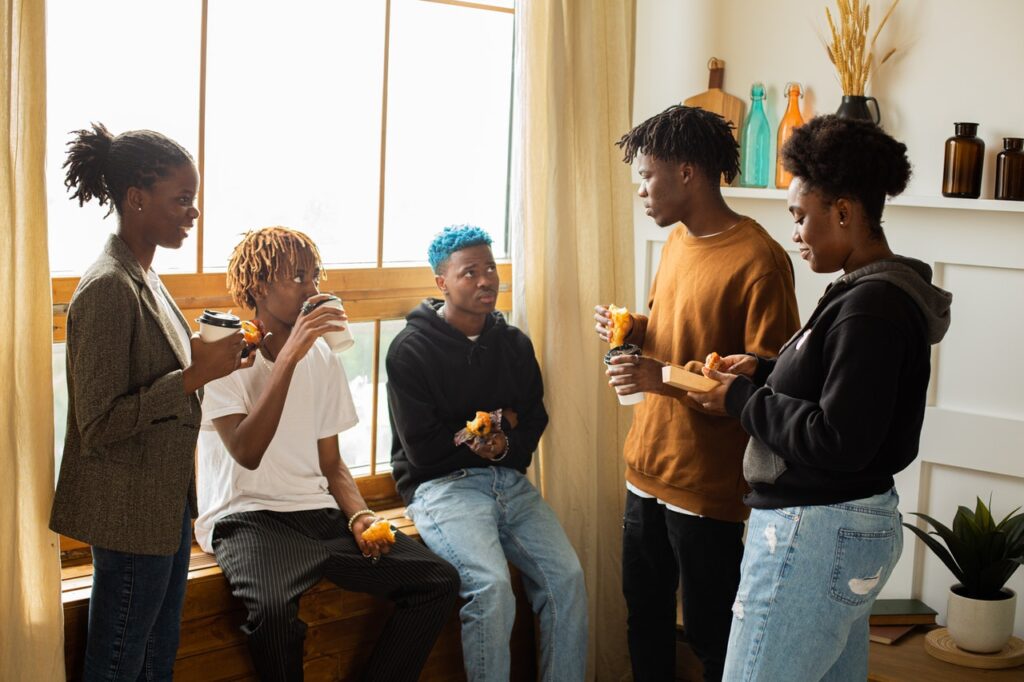These are two of the most common mental health conditions, but getting good treatment depends on knowing the difference. Here’s what you need to know to recognise the symptoms in yourself or a loved one. I help people in London and online with anxiety and depression using hypnotherapy and coaching. If you are unsure if you have depression vs anxiety, read on. You can also get in touch today for more details of my London sessions.

Depression vs anxiety – but they often occur together
Anxiety-related disorders are very common. Indeed, according to US National Institute of Mental Health, 31 percent of U.S. adults will experience anxiety at some point in their lives. Major depressive disorder is also common, with millions adults affected each year. Indeed it’s often less about depression vs anxiety since both conditions may occur together, with half of those with depression also having anxiety. “One predisposes you to the other,” says psychologist Deborah Serani, award-winning author of Living with Depression.
What is the connection? “Studies show that people who have major depressive disorder and generalized anxiety disorder share the same genetic and neurobiological factors,” she says. Gender also plays a role, because women have a higher risk than men for both depression and anxiety.
Depression vs anxiety – Anxiety equals constant worry
Although they’re similar, a difference of depression vs anxiety is that anxiety is marked by nearly unending worry, unlike depression. It’s normal to be anxious sometimes, such as before a big presentation at work, but anxiety goes way beyond that. When these experiences become difficult to manage because they interfere with work, school, relationships, and self-care, then it’s time to act. Worrying to the point of it consuming a good deal of your day is called obsessive thinking or ruminating and this is a sign of a possible anxiety disorder.
Depression vs anxiety – Depression is a loss of hope
Depression is marked by a persistent sad, hopeless, or “empty” feeling that lasts for more than two weeks. When you think of depression vs anxiety, depression is a state of depletion, often you may feel as if your body is tired, mind foggy, your spirit a little broken. It’s also about thoughts, which may be characterised as ones of sadness or hopelessness.
These feelings are real and not something you can just “snap out of.” Feeling down makes it hard to find joy, contentment, or hope.
Depression vs anxiety – Different kinds of anxiety
Although many people suffer from generalized anxiety disorder, there are specific types that depend on what tends to make you most anxious. A common type is social anxiety, when you feel worry or fear in social interactions. As such social settings and social activity can trigger the anxiety, so many people avoid interaction. So in terms of depression vs anxiety, you probably aren’t down or sad but rather feel anxious. Going to a party, giving a speak prompts anxiety symptoms of a rapid heartbeat, sweating, or difficulty breathing.
Other forms of anxiety can include specific phobias like heights, insects, or deep ocean waters. Post-traumatic stress disorder (PTSD) is also classified as an anxiety disorder.
Depression vs anxiety – Depression messes with mood
In terms of depression vs anxiety, depression is classified as a mood disorder because it affects your emotional state. Depression affects the mind, so has cognitive symptoms, but also affects the body, giving rise to physical symptoms, and the spirit, creating emotional symptoms.
Along with just feeling sad, these emotional feelings may include for example despair, apathy, low self-confidence, pessimism, and worthlessness.

Depression vs anxiety – Anxiety may be the root of depression’s irritability
The stresses of low mood, depression and anxiety can leave you agitated and cranky. Depression vs anxiety are similar, with both having irritability as a symptom, tut actually, anxiety is often the underlying culprit. When we are stressed or anxious the body goes in to the fight or flight response. This means that when you are depressed and also have anxiety, your adrenal system, that creates that fight or flight response may be working on overload.
Depression vs anxiety – and concentration
The two conditions each mess with your mind and can make it hard to perform everyday tasks without getting overwhelmed. But the reasons that depression vs anxiety causes mental problems like difficulty focusing and concentrating aren’t the same. Each disorder works differently, with depression, there is a slowness of thinking, but with anxiety, a person can move into a heightened state of alert, which will impede concentration. Also depression, especially when it occurs along with anxiety, has been shown in research to cause memory problems.
Depression vs anxiety Both have physical symptoms
People with depression may either sleep too much or not enough, and insomnia is a hallmark of anxiety’s constant state of high alert. Someone who wakes up early and can’t turn their brain off is likely to have anxiety, whilst someone who has trouble waking up is suggestive of depression. Yet it is also very common that people with major depressive disorder wake up early and cannot fall back to sleep.
Symptoms of fatigue could be partly due to lack of sleep. Even though depression can cause fatigue, it is often doing more than one feels enough energy to do so that can help to combat depression. Physical exercise is a great preventative and intervention for both anxiety and depression. Depression and anxiety have both been linked to poor appetite or overeating, as well as gastrointestinal issues, stomach pains, IBS and indigestion.
Depression vs anxiety – Hypnotherapy
I provide help for people with anxiety or depression or both, in London. I use hypnotherapy, aspects of CBT (cognitive behavioural therapy), coaching and NLP (Neuro-linguistic programming). If you or someone you know is need of support get in touch today
